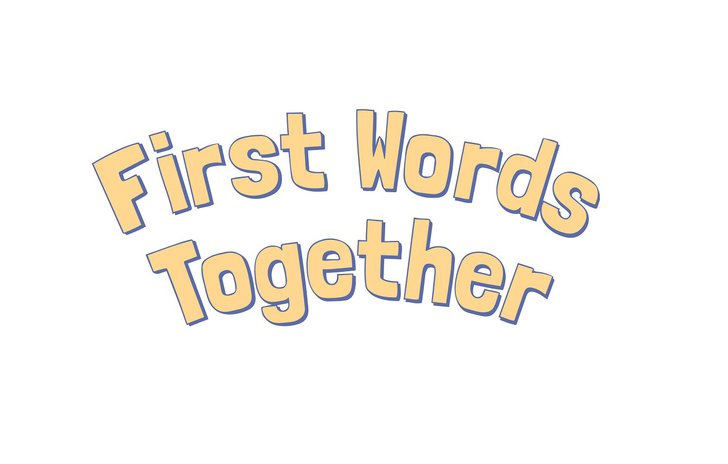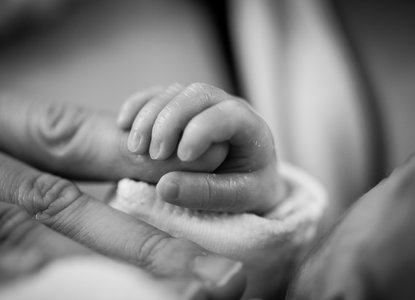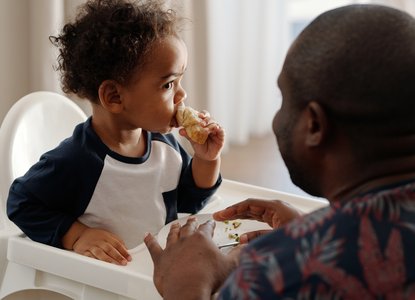When do babies and toddlers start to talk?
Typically, the average age babies start saying their first words is between 12 and 18 months. Although we know that babies are all fabulously unique and you can rest assured that this means they all develop at a different pace. There is no ‘right time’ for your child to start saying words. However, as parents and caregivers, it can feel daunting to know where to begin to encourage babies to start talking.
How can I encourage my baby or toddler to start talking?
A lot of activities that will help your children learn to talk might be things you do already at home!
We've worked with an expert speech and language therapist to create five simple steps to help you practice these activities at home more regularly, to encourage your toddler to talk. Each tip should easily fit into your day-to-day life and support your child’s speech, language and communication development.
In five simple steps, you will encourage your toddler to start talking. Each tip will show how you can use everyday interactions as well as play, songs and stories, to build confidence and encourage communication and first words.
Let’s get started! Read on for our five talking tips to encourage your toddler to talk. The tips are available to listen to in other languages if you scroll further down, too!
Talking Tip One: Be face to face with your child
Your baby learns so much from your face! When you play games like ‘peek-a-boo’, sing songs together or make silly noises, your baby is constantly learning new words.
Being face to face with them is an important building block for their communication – and it helps you to understand what they are telling you before they can talk.
Babies learn to talk by copying things you have said a hundred times before. Watching your mouth as you speak will help them learn how to make the sounds they need to build their first words.
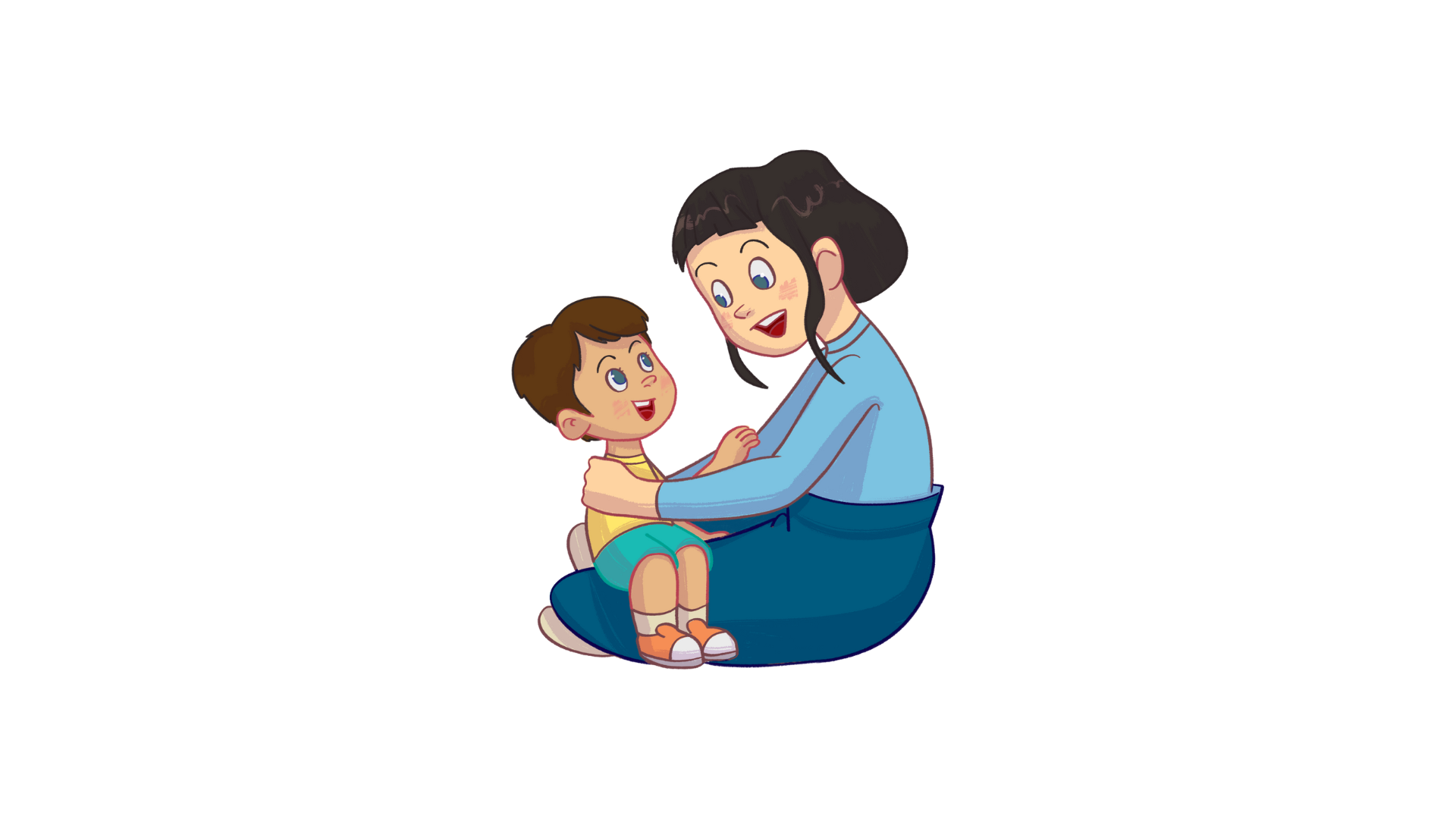
Talking Tip Two: Watch and wait, let your child lead, then join in
Even before they have the words, babies and toddlers love to tell you things. Throughout the day they will show you what they do and don’t like – all you have to do is watch!
During playtime, give your little one choices. Let them take the lead, watch how they like to play and then join in.
Your child will love that you show an interest in what they are doing and will be eager to tell you more and more! It’s also a great way to build the special bond between you.
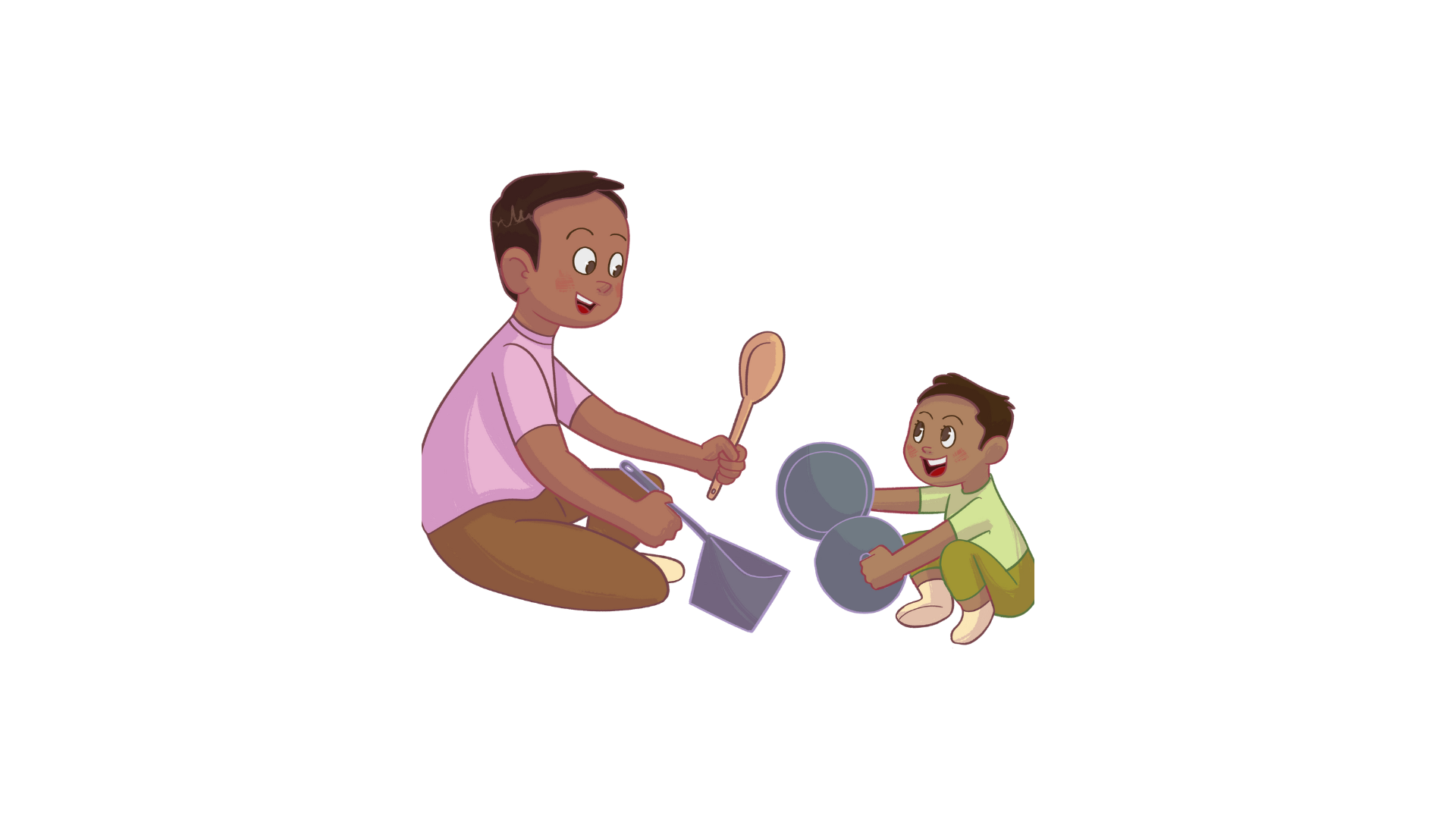
Talking Tip Three: Wait, give your child time to respond
We all love a good chat – and so do babies!
When you’re talking to your baby or toddler, give them time to respond. Your child will communicate with you however they can – by smiling, making a sound or pointing to something.
Waiting for their response not only teaches them to take turns in a conversation, but shows them that you want to hear what they have to say. They will love to feel important!
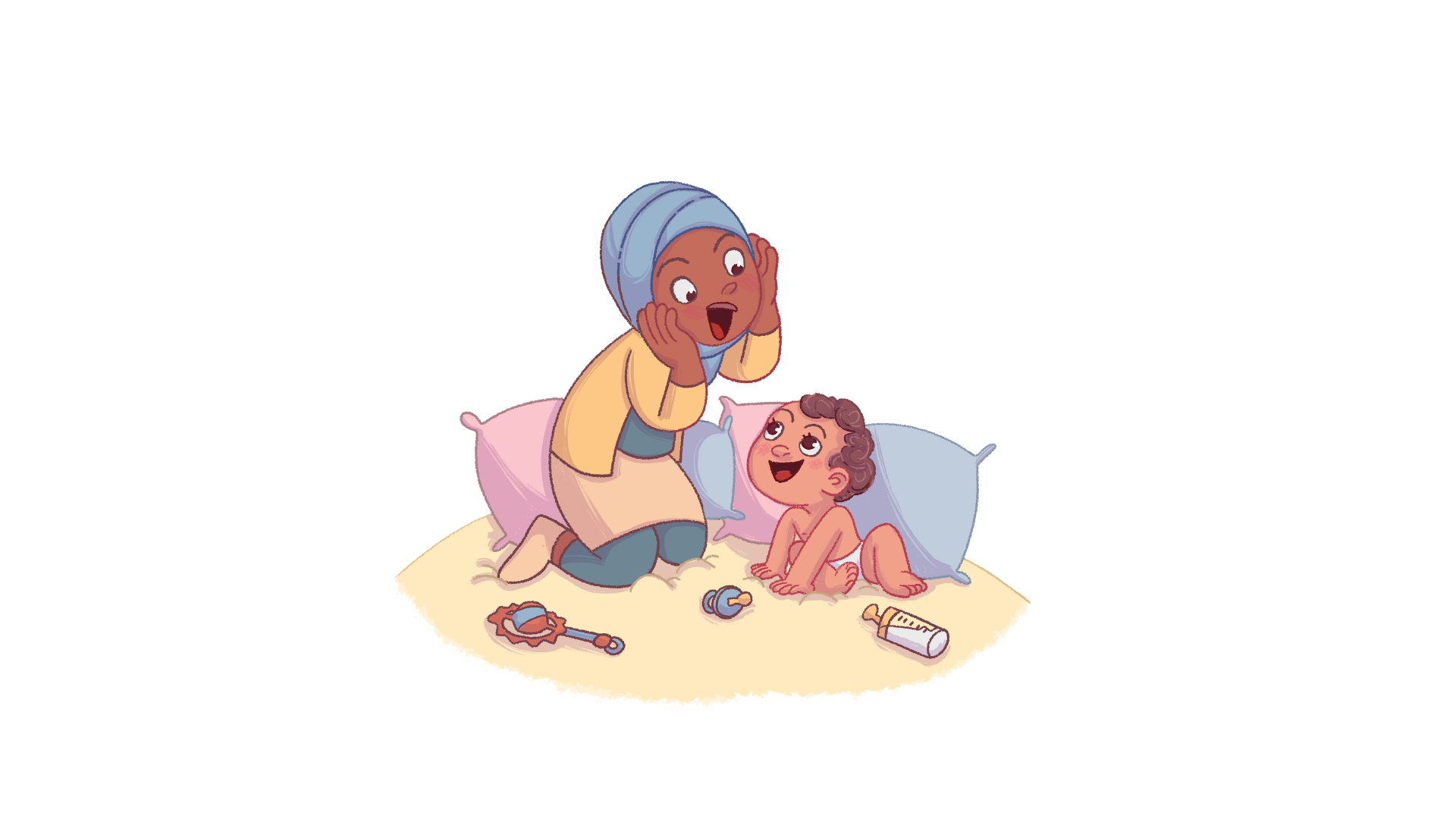
Talking Tip Four: Talk about what your child does
While your child is awake, talk to them about what they are doing. Constantly hearing words will help them learn to talk, as they remember the sounds you have made.
When they are playing with a toy, show an interest and talk about what they’re doing. You could say, ‘Wow, you’re making the train go fast! Where are you driving it to?’
Showing an interest in what they like, and talking about it at the same time encourages your child to learn useful words and their meanings!
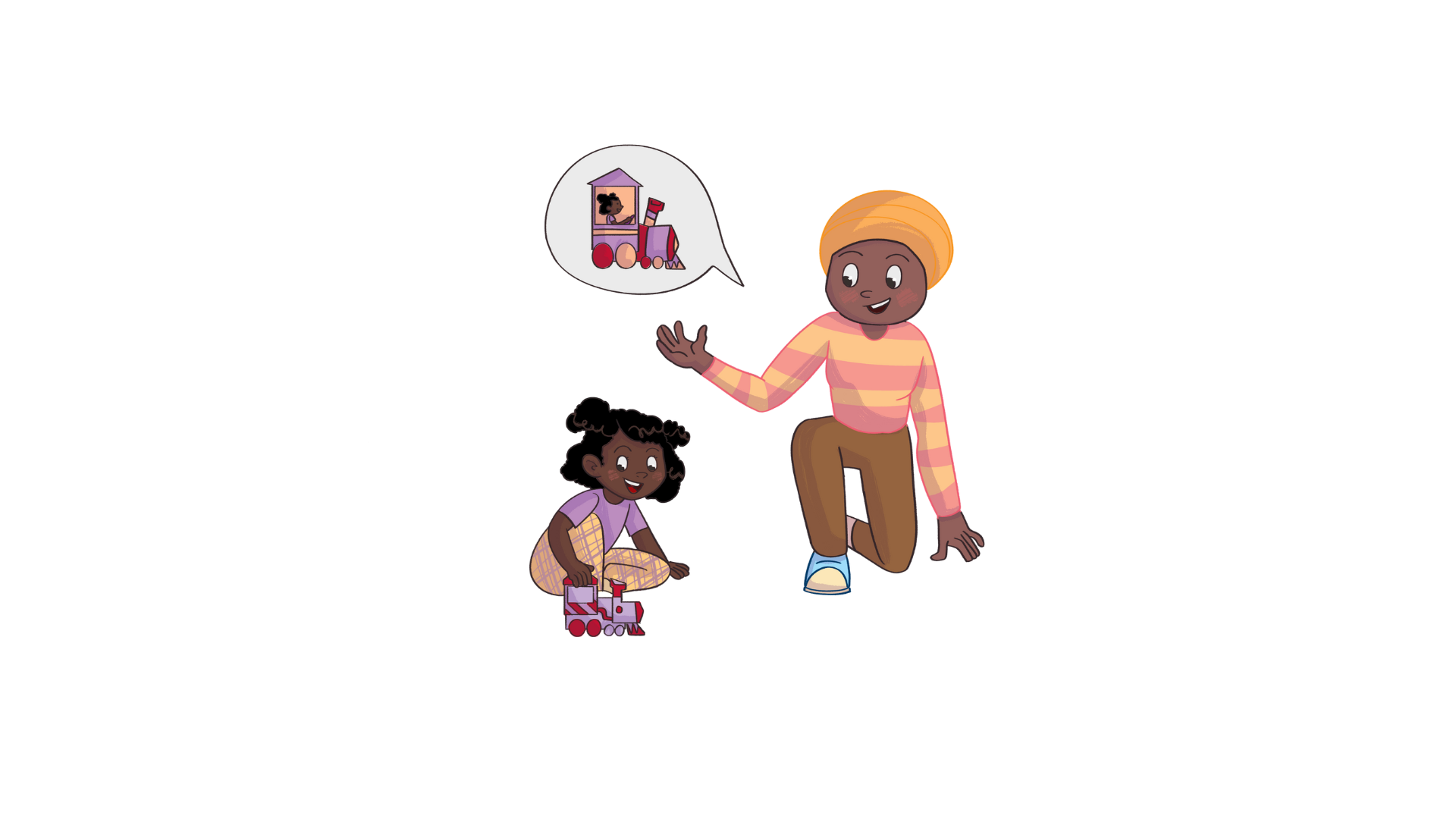
Talking Tip Five: Watch how your child tells you things and put the words in
Your child is always communicating with you, even before they have the words!
Watch how they point or listen to the noises they make – this is their way of telling you something. You can help by adding the words into the conversation.
When you say the words for things they like and want, your child will know that you are listening and trying to understand them. They will be encouraged to learn and try again and again.
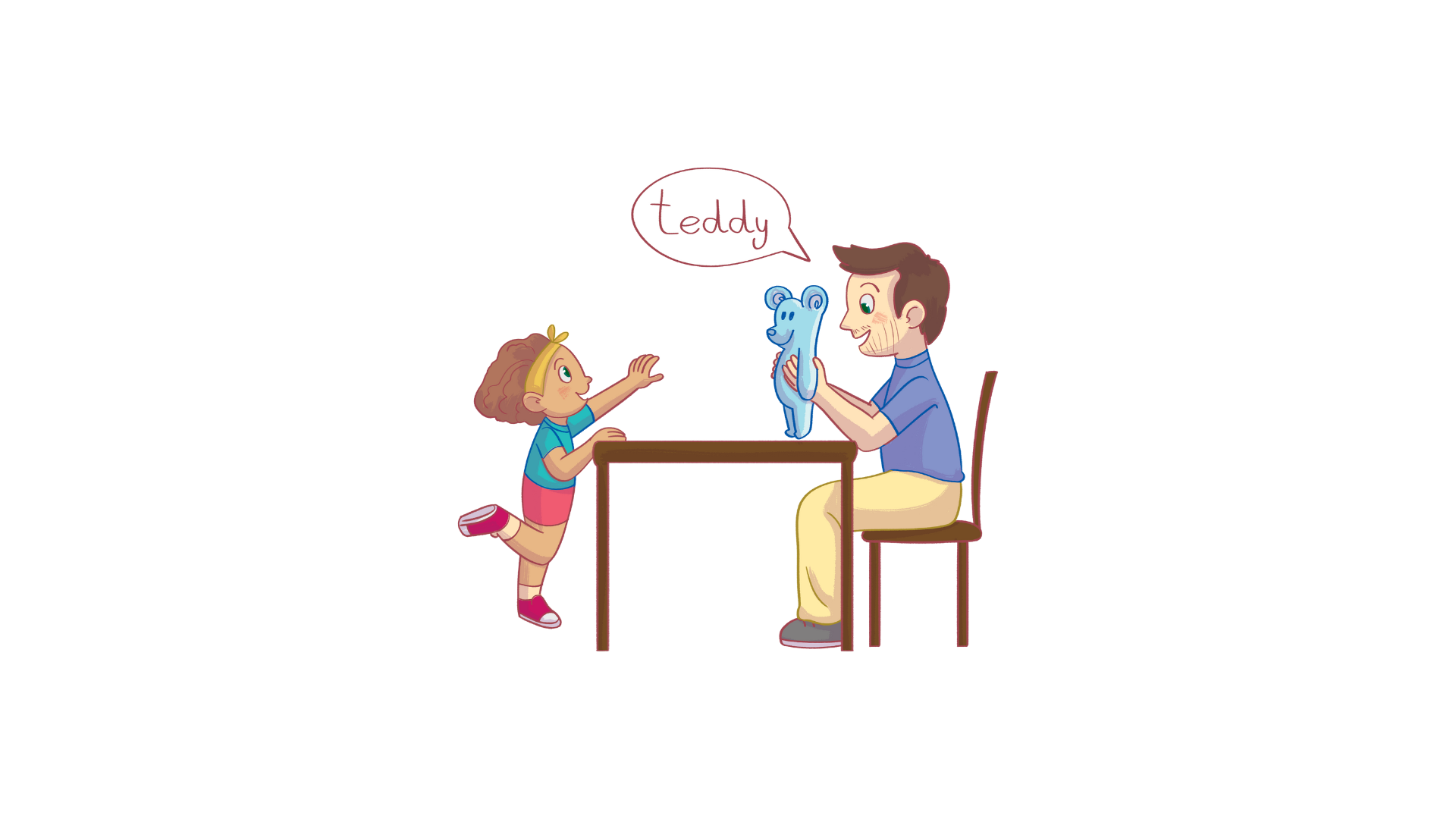
Are there any extra activities I can do to support my child’s speech development?
We’ve teamed up with NHS Speech and Language Therapist, Roxy Bright-Thomas, to answer your frequently asked questions and help you support your child’s communication skills.
Remember children develop at different rates. If you have any concerns regarding your child’s development please speak to your Health Visitor or your local speech and language development department.
First Words Together sessions run at various times throughout the year in locations across the country. To find out if sessions are currently available near you, speak to your local family hub, children’s centre, nursery, or health visitor.
Hear about our sessions in this video:
How can I help my child to speak if we speak a different language from English at home?
The best way to help your child learn to speak is to talk to them as much as possible in your own language. Below you can find each of our tips to encourage your child’s speech development, translated into the language you are most comfortable speaking in. Find your first language below and press play to listen.
You can also read our advice and guidance about speaking to your child in your own language.
